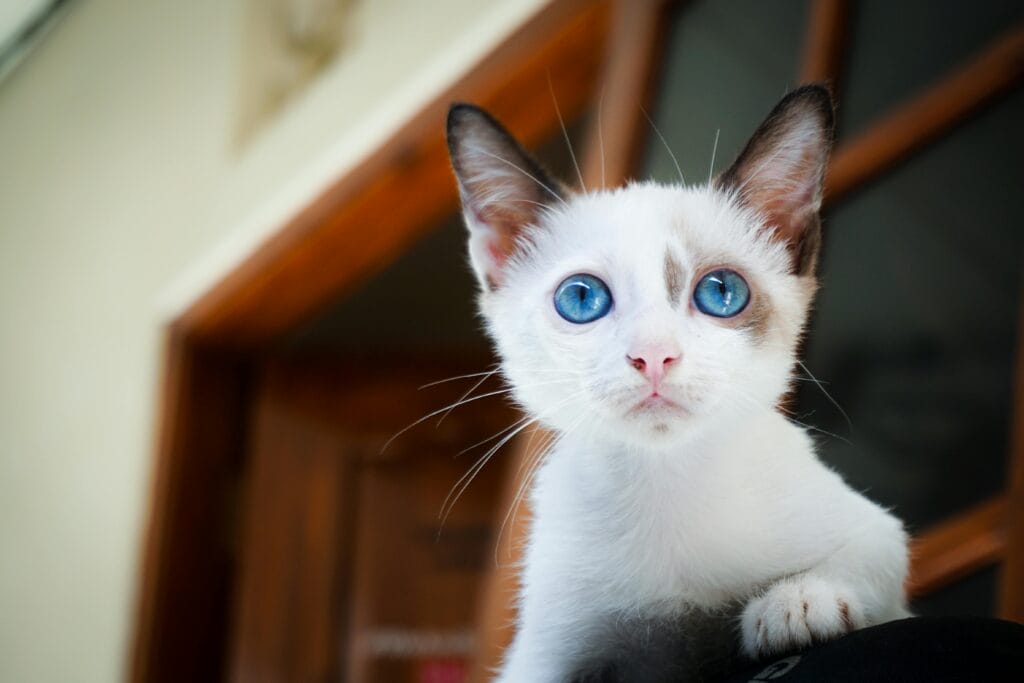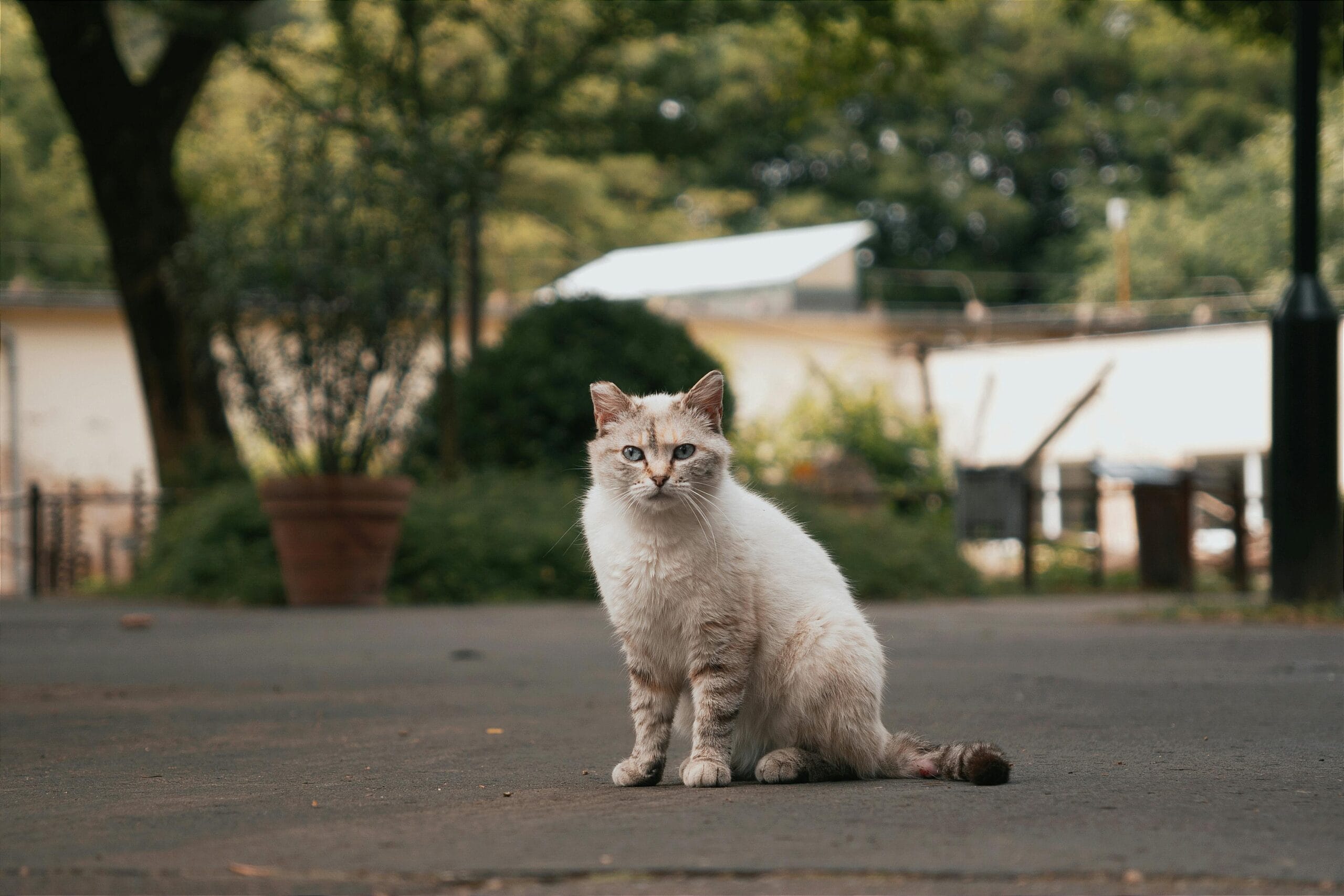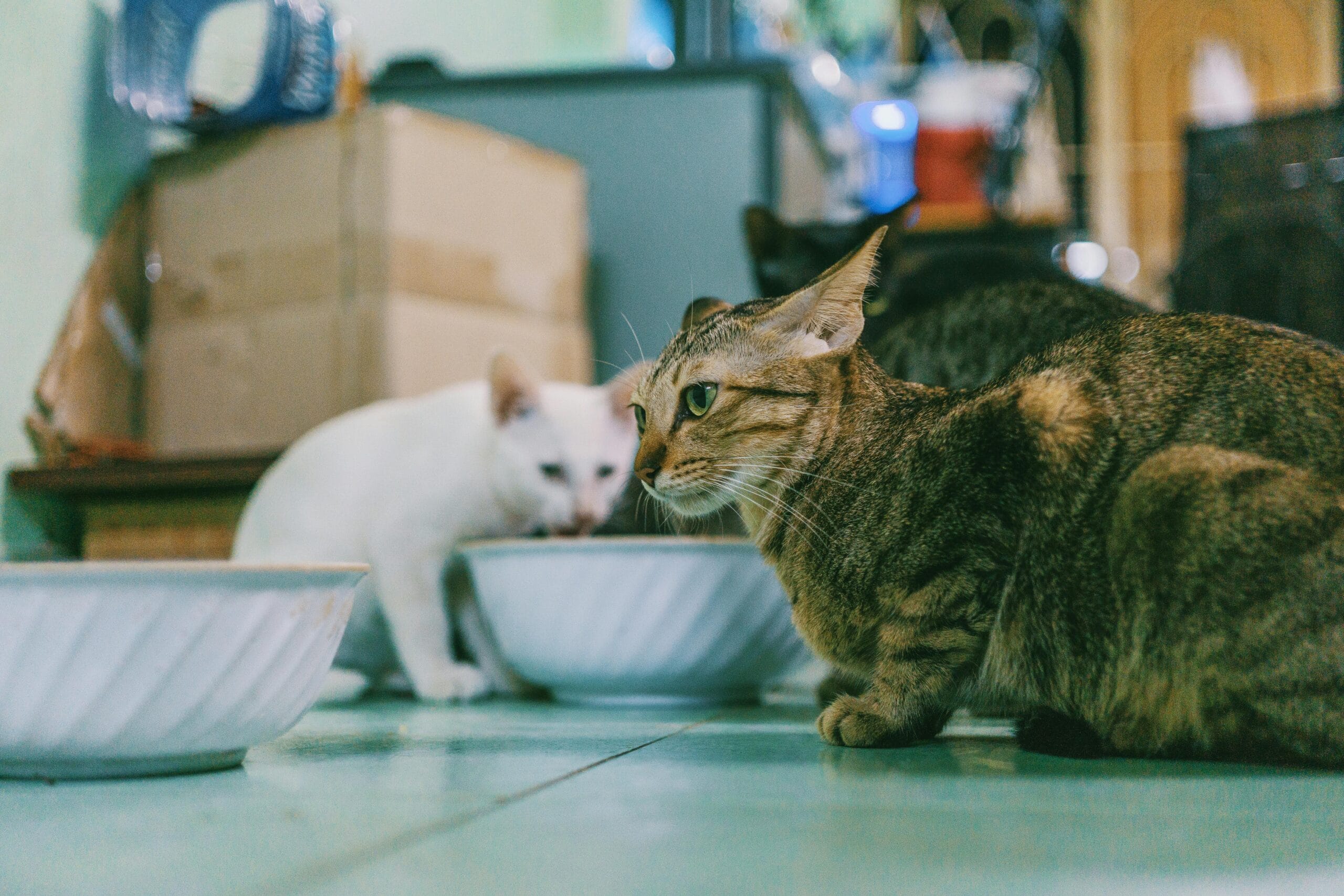Why Is My Cat Pooping Outside The Litter Box ?

Is your cat pooping outside the litter box? Find solutions to cat pooping problems & learn why your cat won’t use the litter box. Get expert advice now! #CatPoopingProblems #CatLitterBox
Why Is My Cat Pooping Outside the Litter Box? A Comprehensive Guide
Is your feline friend suddenly deciding your carpet is the new preferred restroom? Finding cat poop outside the litter box is a frustrating experience for any cat owner. This comprehensive guide tackles the common reasons behind cat pooping problems and offers practical solutions to get your cat back to using the litter box reliably. Understanding why is my cat pooping outside the litter box is the first step to resolving this issue.
Medical Reasons: When to See a Vet
Before diving into behavioral solutions, it’s crucial to rule out any underlying medical conditions. Cat won’t use litter box behavior can be a symptom of various health problems. Urinary tract infections (UTIs), kidney disease, bladder stones, inflammatory bowel disease (IBD), arthritis, and even cognitive dysfunction can cause discomfort during urination or defecation, leading your cat to avoid the litter box. If your cat exhibits other symptoms, such as straining to urinate or defecate, changes in appetite or water intake, lethargy, or blood in the urine or stool, a veterinary visit is absolutely necessary. Early diagnosis and treatment are vital for your cat’s health and well-being. A thorough veterinary examination can pinpoint the problem and provide appropriate treatment. Remember, addressing underlying medical issues is crucial in solving cat pooping problems.
For more information on feline urinary tract infections, you can consult the resources provided by the ASPCA. Their website offers detailed information on various cat health issues.
Litter Box Issues: The Basics
Sometimes, the problem isn’t your cat but the litter box itself. Several factors related to the litter box can contribute to your cat’s avoidance:
Litter Box Location:
Cats are very particular about their bathroom privacy. Is the litter box located in a high-traffic area? Is it too close to food or water bowls? Cats need a quiet, secluded place to relieve themselves. Relocating the box to a quieter area, away from noisy appliances or busy pathways, might make a significant difference. Ideally, you should have one litter box per cat, plus one extra. For large homes, consider additional boxes in more convenient locations.
Litter Box Type and Size:
Does your cat have enough space to comfortably turn around and dig? A too-small litter box can be a deterrent. If your cat is large, consider a larger, open-topped box. Some cats prefer covered boxes for privacy, while others may find them claustrophobic. Experiment with different styles to see what your cat prefers.
Litter Type:
This is a major culprit. Cats can be very sensitive to changes in litter texture, scent, and even dust level. If you’ve recently switched litter brands, your cat’s reluctance to use the box might be due to the new litter’s smell, texture, or dust content. Try switching back to the previous litter to see if that resolves the issue. If a switch is necessary, transition gradually by mixing the old and new litter over several days. Consider unscented, clumping litter that is low in dust, as many cats dislike strong scents or dusty litter.
Litter Box Cleanliness:
Cats are fastidious creatures and will avoid a dirty litter box. Scoop the litter box at least once a day, or even more frequently if you have multiple cats. Completely change the litter and thoroughly wash the box with a mild, pet-safe detergent once a week. Any lingering odors can deter your cat. This is a critical aspect of solving why is my cat pooping outside the litter box problems.
Behavioral Reasons: Understanding Your Cat’s Signals
Often, cat pooping problems stem from behavioral reasons. Cats are creatures of habit, and any disruption in their routine can trigger unwanted behavior. Let’s delve into the potential behavioral causes.
Stress and Anxiety:
Changes in your household, such as a new pet, baby, or even moving furniture, can stress your cat. Stress can manifest as litter box avoidance. Providing your cat with a safe and secure space, such as a cat tree or comfortable bed, can help alleviate stress. Feliway diffusers release synthetic pheromones that can calm anxious cats. For more severe anxiety, consult your veterinarian or a certified cat behaviorist.
Territorial Issues:
Cats are territorial animals. If there are multiple cats in your home, they may be competing for resources, including litter box access. Multiple litter boxes can alleviate this tension. Ensure each cat has sufficient space to feel safe and secure within your home.
Medical Conditions Mimicking Behavioral Issues:
It’s crucial to remember that some underlying medical conditions can initially manifest as behavioral changes. If your cat suddenly starts exhibiting litter box avoidance accompanied by other symptoms, like increased thirst, changes in appetite or weight, or lethargy, a veterinary examination is absolutely crucial. Don’t delay seeking professional help; early intervention is key for successful treatment of cat won’t use litter box issues.
Pain and Discomfort:
Arthritis, hip dysplasia, or other physical ailments can make it painful for your cat to use the litter box, especially if the box is low to the ground or difficult to access. Consider providing a ramp or steps to make it easier for your cat to enter and exit the litter box. A veterinary check-up can rule out any physical limitations contributing to the problem.
Troubleshooting Steps: How to Solve the Problem
Once you have ruled out medical causes, follow these troubleshooting steps to determine why your cat is pooping outside the litter box:
- Clean the litter box thoroughly: Even a slightly dirty box is often enough to trigger avoidance behavior.
- Try a different litter type: Experiment with various litters until you find one your cat prefers.
- Relocate the litter box: Find a quiet, private, and easily accessible spot.
- Add more litter boxes: Multiple boxes can cater to multiple cats or a cat’s preference for more than one spot.
- Observe your cat’s behavior: Note any patterns or triggers leading to outdoor defecation.
- Consider a behavior modification program: A cat behaviorist can help identify underlying causes and develop a customized solution.
For additional resources on cat behavior, visit the website of the International Cat Care. They provide valuable information and guidance on various cat-related issues.
When to Seek Professional Help: Cat Behaviorists and Veterinarians
If you’ve tried the above troubleshooting steps and your cat is still pooping outside the litter box, it’s time to seek professional help. A veterinarian can rule out any underlying medical conditions. A certified cat behaviorist can provide guidance and develop a behavioral modification plan tailored to your cat’s individual needs. Remember, persistent cat pooping problems can often have underlying causes that require specialized attention.
Conclusion: Patience and Persistence Are Key
Addressing why is my cat pooping outside the litter box requires patience, observation, and a systematic approach. By carefully examining potential medical and behavioral causes, and implementing the troubleshooting steps outlined above, you can increase the likelihood of resolving this frustrating problem. Remember, early intervention and professional help can often make a significant difference in restoring your cat’s healthy litter box habits.
We hope this article has provided you with valuable insights into understanding and resolving your cat’s litter box issues. Share your experiences and solutions in the comments below! Let’s help each other navigate the world of cat won’t use litter box and cat pooping problems together!

Why is my cat pooping outside the litter box?
My cat suddenly won’t use the litter box. What should I do?
My cat is pooping on the carpet. How do I stop this?
Is my cat pooping outside the litter box because it’s dirty?
My cat only poops outside the litter box at night. Why?
What type of litter is best to prevent my cat from pooping outside the litter box?
How many litter boxes do I need for my cat?
My cat is pooping outside the litter box after a move. What can I do?
Can stress cause my cat to poop outside the litter box?
When should I take my cat to the vet for pooping problems?

Why Is My Cat Pooping Outside the Litter Box? Practical Tips and Health Considerations
Discovering your cat is pooping outside the litter box is frustrating, but understanding the underlying causes is key to resolving the issue. This could stem from behavioral problems or underlying health concerns. Addressing both is crucial for a happy and healthy cat.
Behavioral Reasons and Solutions
Litter Box Issues:
- Cleanliness: Cats are fastidious. Scoop the litter box at least once a day, and completely change the litter regularly. Consider using unscented litter.
- Litter Type: Experiment with different litters. Some cats prefer clumping, some non-clumping, and others have sensitivities to certain scents or textures.
- Box Location and Access: Ensure the litter box is in a quiet, easily accessible location, away from food and water. Multiple boxes, especially for multi-cat households, are often necessary.
- Box Size and Type: A box that’s too small or difficult to enter can deter your cat. Consider open-top boxes or larger, covered boxes with easy entry.
Stress and Anxiety:
- Changes in the Home: New pets, furniture, or family members can stress your cat. Provide extra attention, familiar toys, and safe spaces.
- Medical Procedures: Post-surgery or illness can lead to litter box avoidance. Consult your vet.
- Multi-Cat Households: Competition for resources can cause stress. Ensure each cat has enough litter boxes, food bowls, and resting areas.
Other Behavioral Causes:
- Spraying: If it’s urine marking, not defecation, your cat might be marking territory. Neutering/spaying can help. Consult your veterinarian.
- Medical Issues Mimicking Behavior: Sometimes, underlying medical problems manifest as behavioral changes.
Health Considerations
Veterinary Visit: If your cat suddenly starts pooping outside the litter box, a vet visit is crucial. Many medical conditions can cause this:
- Urinary Tract Infections (UTIs): Painful urination can lead to litter box avoidance.
- Arthritis or Mobility Issues: Difficulty accessing the litter box due to pain or stiffness.
- Gastrointestinal Problems: Diarrhea or constipation can cause accidents.
- Cognitive Dysfunction Syndrome (CDS): Older cats may experience cognitive decline affecting their litter box habits.
- Hyperthyroidism or Diabetes: These conditions can increase urination and defecation frequency.
Diagnosis and Treatment: Your veterinarian will conduct a thorough examination, possibly including blood tests and urine analysis, to determine the cause and recommend appropriate treatment.
Conclusion
Addressing your cat’s litter box issues requires a systematic approach. Start with simple solutions like improving litter box hygiene and location, but always consult your vet to rule out underlying health problems. Early diagnosis and treatment are crucial for your cat’s well-being.
Keywords: cat pooping outside litter box, cat litter box problems, cat behavioral issues, cat health, urinary tract infection, feline arthritis, litter box training, multi-cat household, stress in cats, cat health concerns.